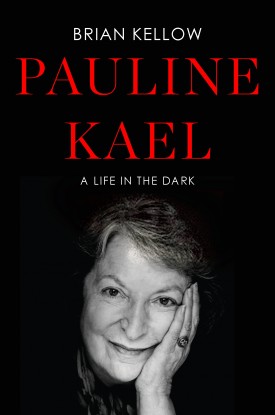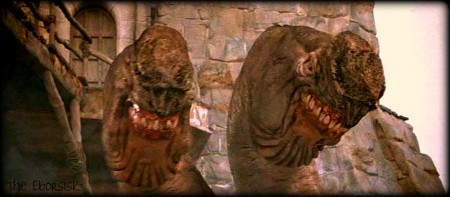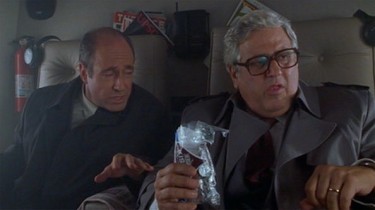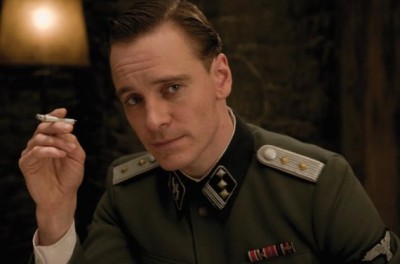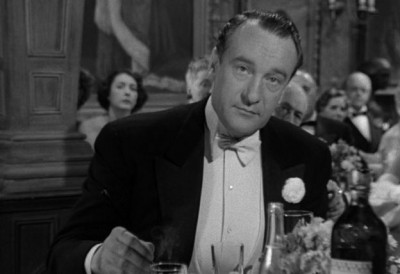Film Critics In Movies
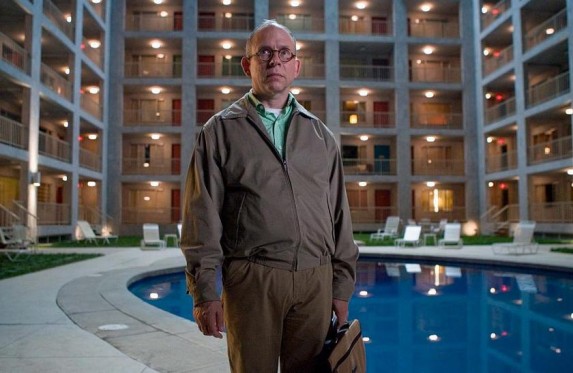
There’s a small but fascinating section in Peter Biskind’s legendary book Easy Riders, Raging Bulls that is further explored in the same author’s recent biography of Warren Beatty. It concerns how legendary New Yorker film critic Pauline Kael was lured to Hollywood to be a producer by Beatty and how badly it all went.
It speaks to the problematic relationship between critics and filmmakers quite effectively – the critics spend their lives questioning and undermining a lot of what the filmmakers do, but would most likely drop their integrity at a moment’s notice to actually, y’know, be involved.
Beatty (and the Hollywood system to a larger extent) chewed up and spat out Kael without any films featuring her name being released. Beatty later said “Hiring her was the stupidest thing I’ve ever done”.
Kael’s short-lived time as a producer hasn’t seemed to tarnish her legacy as one of the most influential critics of all time, but it serves as a decent example of the general enmity with which filmmakers view critics.
This enmity has often spilled over into the movies themselves, and in this blog I’m gonna cite some of my favourite examples.
One of the most hilarious incidences occurs in M. Night Shyamalan’s 2006 flop Lady In The Water. As if casting himself as the author of a book that saves the world and naming a major character ‘Story’ wasn’t enough, Shyamalan portrays a film critic character as officiously close-minded and deserving of death. Why don’t you tell us what you really think, M. Night!
Shyamalan’s indictment of film critics here reaches its crescendo when Jeffrey Wright’s character Mr. Dury says of Bob Balaban’s film critic Harry Farber: “What kind of person would be so arrogant as to presume the intention of another human being?”
Okay, we get it, M. Night: some films reviews have caused you consternation. Way to rise above it!
The first example I ever encountered of filmmakers referencing critics came when I saw George Lucas and Ron Howard’s underrated 1988 Lord of the Rings rip-off Willow, which was partially shot in New Zealand.
The evil general in the film is (surely not coincidentally) named Kael, and as the ever handy IMDb trivia page tells us, the original press kit referred to the two-headed dragon as “Eborsisk”, a combination of Roger Eberg and Gene Siskel, two of the most visible film critics of the ’80s.
Siskel and Ebert got a less subtle evisceration in Roland Emmerich’s 1998 mega-turkey, Godzilla. The bumbling, greedy Mayor of New York in the film is named ‘Ebert’ and is played by the as-fat-as-Ebert character actor Michael Learner while the Mayor’s assistant ‘Gene’ is a dead ringer for Siskel.
Emmerich had apparently not forgotten Siskel and Ebert’s less-than-enthusiastic reactions to his two previous films Independence Day and Stargate. When reviewing Godzilla on their show, Siskel described the move as “petty” and quite accurately stated that “if you’re going to go through the trouble of putting us in a monster movie, why don’t you at least take advantage of having the monster either eat or squash us”. Darn tootin’!
My favourite aspect of Quentin Tarantino’s Inglourious Basterds remains Michael Fassbender’s performance as refined Brit Lt. Archie Hickox. I kinda lost interest after the character bought it in that bar. But making Hickox a film critic was a nice touch, and seems very much in line with Tarantino’s particular filmic leanings. I am not gonna read anything into his violent death.
I’ll leave it to screenwriter (and now director!) Larry Karaszewski to attempt to explain exactly why critic Rex Reed appears in the 1970 folly Myra Breckindridge in this fascinating Trailer From Hell.
The way the food critic in Ratatouille is portrayed (pre-final act redemption) speaks to the enduring popular perception of film critics as haughty egocentrics more concerned with self-aggrandization than earnest assessment. The era represented by that perception grows dimmer with the protracted death of print media. Sigh.
Joseph L. Mankiewicz’s ceaselessly entertaining showbiz treatise All About Eve features my favourite critic character of all-time, the debonair, arrogant, perceptive, eloquent, shallow dandy Addison DeWitt, played by George Sanders. He plays a high-ranking theatre critic but also sort of narrates the film, bringing a cinematic dimension to his views on the characters.
Although he’s never really identified as such, many of the characters Woody Allen plays in his own movies come across as a more generous idea of what a film critic might be. This legendary scene in Annie Hall in which he argues with a know-it-all standing behind him is one of the coolest movie moments involving film criticism ever:
Can you name any other films that feature film critics as characters, or make particular reference to film critics? Comment below!


